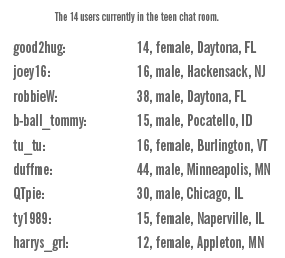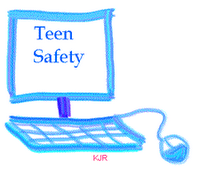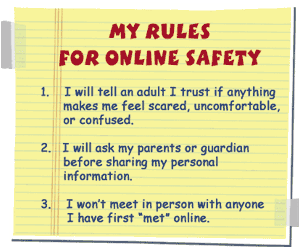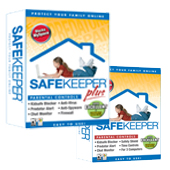Teens Vulnerable to Contact with Strangers on Social Networks
At least 55% of online teens have profiles online today.
In a digital world increasingly dominated by social networks like MySpace and Facebook, new concerning issues have arisen in reagrds to the online safety of younger consumers and the marketers who covet them. According to a new study released by The Pew Internet & American Life Project, some 32% of online teenagers and 43% of social-networking teens have been contacted online by complete strangers.
Additionally, 17% of online teens -- 31% of social networking teens -- have "friends" on their social network profile who they have never personally met.
The Pew Internet & American Life Project study examined how teens understand their privacy through several lenses: by looking at the choices that teens make to share or not to share information online, by examining what they share, by probing for the context in which they share it and by asking teens for their own assessment of their vulnerability.
The study was reassuring about teens' ability to protect themselves online. "Most teenagers are taking steps to protect themselves online from the most obvious areas of risk," according to Pew's report. "The new survey shows that many youth actively manage their personal information as they perform a balancing act between keeping some important pieces of information confined to their network of trusted friends."
Among the teens who have profiles, 66% of them say that their profile is not visible to all internet users. This means 34% are visible.
Teens do limit access to their profiles in some way. Among those whose profiles can be accessed by anyone online, 46% say they give at least a little and sometimes a good deal of false information on their profiles. Teens post fake information to protect themselves, but also to be playful or silly.
The Pew Internet & American Life Project study was based on the findings of a nationally telephone survey of 935 U.S. teens American teens ages 12-17 late last year.
Labels: digital life, Digital Parenting, MySpace, online profiles, Pew Internet and American Life Project, Safekeeper, Safety, Teens













































